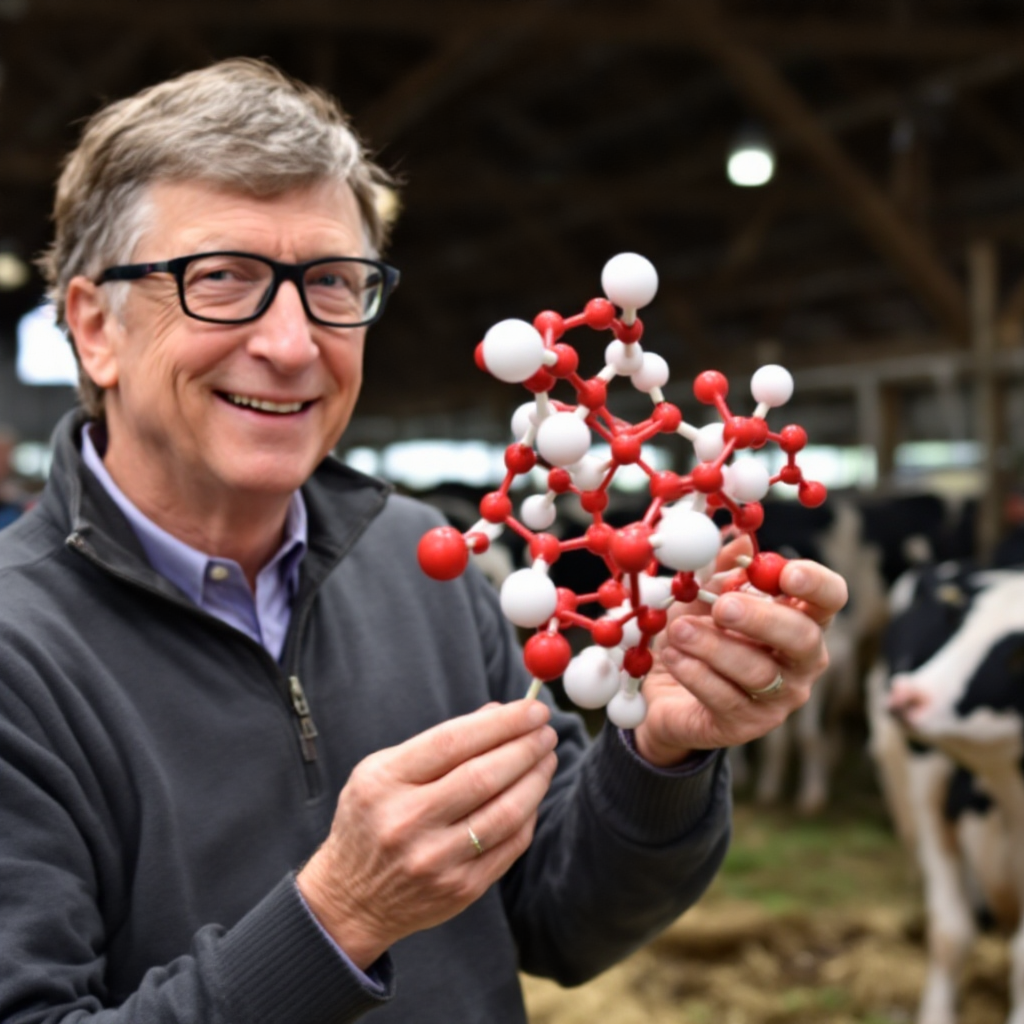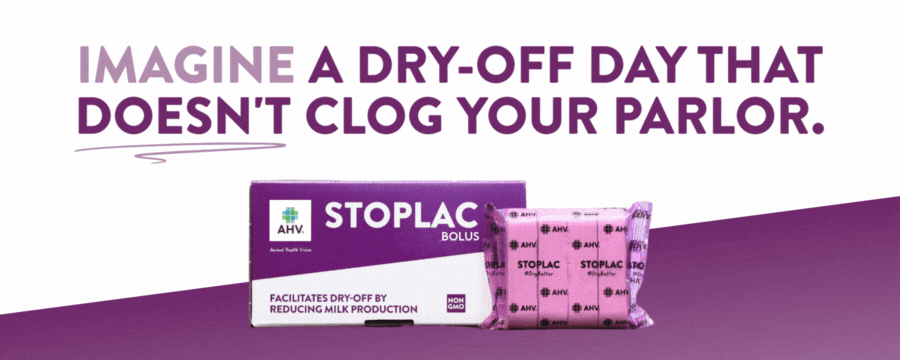Delve into the truth about Bill Gates and Bovaer. How does misinformation affect the future of dairy farming? Discover facts and reassess your views now.
Summary:
In today’s digital age, misinformation can ensnare even the most esteemed figures like Bill Gates, who find themselves embroiled in conspiracy theories. Currently, at the center of this vortex is Bovaer—a scientifically-backed feed additive aimed at reducing livestock methane emissions, a significant climate change factor. Despite Gates having no connection to Bovaer, unfounded rumors falsely tie him to its production, alleging he coerces dairy farmers into its use, a claim devoid of truth. Bovaer emerges as a groundbreaking tool for the dairy sector, aligning with sustainable practices while not compromising productivity or climate targets. Backed by scientific validation and approved across 55 countries, including major regions like the EU and Canada, misinformation regarding Bovaer hampers farmers, escalating costs, thwarting efficiency, and jeopardizing business relations. Critically, Bovaer’s safety is underscored by its efficacy in cutting dairy cattle methane emissions by 30%, maintaining milk quality, and receiving clearance from regulatory bodies including the European Food Safety Authority. Arla, a key dairy corporation, refuted false claims of Gates’ involvement, reinforcing their dedication to transparency and safety and launching educational efforts to inform about Bovaer’s benefits.
Key Takeaways:
- Bovaer is a feed additive developed by DSM, aimed at reducing methane emissions from livestock, showing significant results in both dairy and beef cattle.
- Despite widespread rumors, Bill Gates is not directly involved with Bovaer; instead, he has invested in a different methane-reducing additive through Rumin8.
- Misinformation surrounding Gates’ involvement has led to calls for boycotts and unfounded health concerns, all of which have been debunked by reliable sources.
- Regulatory bodies have approved Bovaer, confirming its safety and effectiveness, while companies like Arla emphasize its non-impact on milk quality.
- These false claims seem to stem from a larger conspiracy against Gates’ environmental initiatives, highlighting the challenge of navigating misinformation online.
- Proactive transparency and education by companies and experts are crucial in countering misinformation and ensuring trust in innovative agricultural technologies like Bovaer.
- Bovaer holds potential for significant environmental impact, signaling a pivotal shift in sustainable livestock farming despite the surrounding controversies.

Bill Gates is facing another controversy, not in technology, but in the dairy industry. Unfounded social media rumors link him to Bovaer, a cow feed additive that reduces methane emissions. These accusations suggest Gates is forcing dairy farmers to use this product, but there is no factual basis for this claim. This misinformation threatens the trust and reliability of the dairy industry. Addressing these false claims is critical. Let’s examine how these myths affect dairy farming and highlight why the truth is vital for its future.
Turning Tides: Bovaer’s Revolutionary Role in Pioneering Sustainable Livestock Farming
Bovaer, a revolutionary feed additive in sustainable livestock farming, is a product of DSM, a global science-based company. DSM’s expertise and commitment to sustainability have led to the development of Bovaer, which effectively reduces methane emissions from cows, a significant greenhouse gas problem. It targets an enzyme in a cow’s stomach to reduce methane without affecting digestion.
Research shows that Bovaer can reduce methane emissions by up to 30% in dairy cows and 45% in beef cattle. Scientific studies support these results and prove their effectiveness. DSM’s trials confirm Bovaer’s ability to tackle environmental issues in animal farming.
Bovaer’s approval in over 55 countries, including the EU, UK, Canada, and Australia, underscores its safety and quality. The endorsement from esteemed bodies like the European Food Safety Authority is a testament to its high standards, reassuring all stakeholders.
Bovaer offers a sustainable solution for the dairy industry. As global dairy demand increases, producers need to reduce their environmental impact. Bovaer helps them achieve this while maintaining productivity and meeting climate goals. It equips dairy farmers with a tool to minimize their contribution to global warming.
Bill Gates: Caught in the Crossfire of Bovaer Misinformation
Bill Gates, known for his work in tech and charity, is wrongly linked to Bovaer, a feed additive by DSM that reduces methane emissions. Why do conspiracy theorists often pick Gates as a target? His actions on climate change draw critics. Sometimes, the projects he supports are distorted to fit anti-establishment views. This misinformation probably comes from misunderstanding his backing for climate solutions. In his book How to Avoid a Climate Disaster, Gates talks about Bovaer’s potential but disapproves of it. His actual involvement is with Rumin8, supported by Breakthrough Energy Ventures. Even after clear statements, conspiracy theories continue. Gates’ climate work makes him an easy target. Sticking to facts is key to keeping conversations about innovations like Bovaer accurate.
Shadows of Falsehood: How Misinformation Threatens the Backbone of Dairy Farming
The swirl of misinformation around products like Bovaer doesn’t just hide the truth; it affects the core of the dairy industry—farmers. This false information can change decision-making even for experienced farmers. Picture a farmer looking at a methane-reducing additive like Bovaer. If they believe the false claims, they might ignore something that could help their business and the environment. Industry experts point out this chain reaction. Decisions based on misleading information impact the whole supply chain, including farm finances and reputation. It can lead to higher costs and missed chances for efficiency and sustainability. Reputation is also on the line. Dairy farmers may be seen as outdated, hurting their relationships with partners and customers. We must be forward-thinking to keep our standing. This shows the importance of farmers’ dependability on credible sources when looking at new practices. Staying informed protects both their financial interests and their trust in the community.
Fact or Fallacy? The Scientific Basis Behind Bovaer’s Safety
The scrutiny surrounding Bovaer’s safety and effectiveness underscores the need for solid scientific evidence. Scientific studies show that Bovaer can reduce methane emissions in dairy cattle by up to 30% [ScienceDirect]. Regulatory approvals from the European Food Safety Authority confirm that it is safe for cattle and consumers and does not affect milk quality [EFSA].
Claims about male fertility need more scientific backing. No studies or trials have found any effect on human fertility; these are simply misinformation. Research on similar additives consistently shows they are safe when consumed in dairy products [NIH].
In light of unverified claims, it is crucial to depend on rigorous science and transparent regulations regarding Bovaer. Evidence shows that Bovaer is a sustainable breakthrough without the alleged health issues.
Navigating the Storm: Arla’s Commitment to Transparency in the Face of Bovaer MisinformationArla quickly addressed the false claims linking Bovaer to Bill Gates, stressing its commitment to openness and safety. It called these links baseless and pointed to vigorous safety checks approved by bodies like the European Food Safety Authority and the U.K. Food Standards Agency. Arla emphasized its focus on consumer and animal health.
To support their claims, Arla started educational campaigns to educate consumers and the dairy industry about Bovaer’s advantages. These efforts shared scientific data showing Bovaer’s ability to cut methane without affecting milk quality or safety. Arla also invited industry partners to help fight these false ideas.
Arla provided detailed information on Bovaer’s tests through seminars, workshops, and informative materials, stressing transparency as a key tool against false information. These activities aim to reassure consumers and build trust in the dairy and agritech fields, demonstrating their dedication to safety and truth.
Navigating the Digital Battlefield: Social Media’s Role in Shaping Truth and Fallacy
Social media is a double-edged sword for information. It provides access to news but spreads misinformation quickly. The Bovaer and Bill Gates cases show how quickly false claims can spread. These platforms often amplify exciting content, focusing on clicks rather than truth. This leads to rumors overshadowing facts, and echo chambers make these false stories even harder to correct.
As seen with Arla, the dairy industry needs to tackle these narratives proactively. Transparency is key. Talking directly to consumers on social media can build trust. Highlighting successes in cutting environmental impacts can change the conversation.
Working with fact-checkers and running educational campaigns can raise awareness about products like Bovaer. Partnering with influencers and experts adds credibility. The industry must counter misinformation, set up systems to spot and fix false stories and ensure the truth wins online. This will keep consumers informed.
The Dawn of a New Era: Bovaer’s Transformative Potential in Dairy Farming
As we look to the future of dairy farming, Bovaer emerges as an innovative feed additive and a significant force in transformation. Its benefits are not only environmental but also economic. By reducing methane emissions, Bovaer can help farmers lower their environmental impact and potentially reduce costs, making the dairy sector more sustainable and profitable.
- Environmental Impact: Bovaer’s key environmental gain is reducing methane emissions, a significant greenhouse gas. Livestock farming makes up about 14.5% of human-driven greenhouse gases. Cutting methane emissions by around 30% in dairy cows is crucial in climate change efforts, helping farmers lower their environmental impact.
- Economic Benefits: Using Bovaer can boost farm profits. Many consumers care about sustainability, creating a market for eco-friendly products. Dairy goods from Bovaer-fed cows could sell for more. Lower emissions can also help farmers earn rewards in carbon markets, offering financial sustainability incentives.
- Alignment with Sustainable Practices: Adding Bovaer to dairy farming aligns with other sustainable farming methods. Bovaer provides practical solutions without drastic changes as the industry shifts towards resilience. This easy adoption can speed the shift to sustainable agriculture, encouraging innovation while respecting tradition.
- Meeting Climate Goals: Bovaer and similar innovations help achieve the agricultural aims of the Paris Agreement and other climate targets. Cutting emissions highlights the farming sector’s role in a sustainable future, allowing farmers to contribute to climate solutions.
Bovaer offers dairy farming a chance to improve sustainability and economic stability. Embracing such innovations tackles environmental issues and positions the industry to succeed as the focus on sustainability grows.
The Bottom Line
As we end this discussion of Bovaer, let’s focus on what matters. The rumors linking Bill Gates to Bovaer show how quickly false information can spread. Strong scientific evidence supports the claim that Bovaer is key to reducing methane emissions in farming. DSM and Arla highlight the importance of being open and safe, showing that we must make well-informed choices.
In the fast-paced world of dairy farming, we need to trust accurate data and substantial evidence. Leaders should think carefully about information, especially with the climate change challenges. This case shows how harmful false information can be to industry honesty and progress.
To keep improving the dairy sector, we must think critically, question suspicious claims, and act based on evidence. How we handle these issues will decide the future of dairy farming. Let’s stand up for the truth, make fact-based decisions, and work together to fight the negative impact of false information.
Learn more:
- The Future of Dairy Farming: Insights for US and Canadian Farmers
- 5 Things You MUST Know about the Future of the Dairy Breeding Industry
- Why 80% of U.S. Dairy Farms Are Struggling: An Insider’s Look at the Unseen Challenges
 Join the Revolution!
Join the Revolution!
Bullvine Daily is your essential e-zine for staying ahead in the dairy industry. With over 30,000 subscribers, we bring you the week’s top news, helping you manage tasks efficiently. Stay informed about milk production, tech adoption, and more, so you can concentrate on your dairy operations.







 Join the Revolution!
Join the Revolution!



